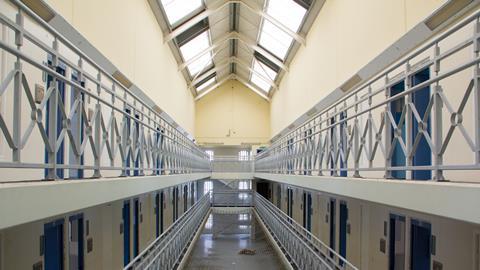A failure to ensure that the number of prison places remained in lockstep with sentencing policy is to blame for a capacity crisis that will take much longer than anticipated to resolve.
That is one headline finding of a new report from public spending watchdog the National Audit Office, which describes previous governments’ expansion plans as ‘unrealistic and not prioritised’.
The Conservative administration’s 2021 commitment to deliver 20,000 new prison places by the mid-2020s is not expected to be achieved until 2031, five years later than planned, the report says. HM Prison & Probation Service (HMPPS) has so far created just 6,500 new places and there is a projected shortage of 12,400 places by end of 2027. Expansion costs are expected to be at least £4.2bn (80%) above estimates.
‘The prison capacity crisis is the result of previous governments’ failure to ensure that the number of prison places was aligned with criminal justice policies such as sentencing and police numbers. Coupled with delays in the current expansion plans, this has led to a reactive and expensive approach that will not meet future demand or deliver value for money in the long-term,’ the NAO adds.
Reasons cited for delays in providing new places include overoptimistic expectations of gaining planning permission for new jails. Cost increases include rocketing inflation in the construction sector, where prices have risen 40%.
In October there were 85,900 people in prison across England and Wales, a 3% fall on September achieved through early releases. A quarter (23,000) of prison places do not meet fire safety standards, while HMPPS’s backlog of maintenance works has doubled to £1.8bn from £900m in the last four years. HMPPS estimates it would cost £2.8bn over the next five years to bring the whole estate into a ‘fair’ condition.
Gareth Davies, head of the NAO, said: ‘The government must learn lessons from the current prison capacity crisis to ensure the long-term resilience and cost effectiveness of the prison estate.’
Richard Atkinson, Law Society president, said the report ‘demonstrates the need to deal with the criminal justice system holistically’. He added: 'After decades of neglect, there are no short-term, easy answers. Sustained investment and long-term measures which take all parts of the system – legal aid, police, prosecution, courts, prisons, probation – into account are the only solution.’
This article is now closed for comment.




























6 Readers' comments